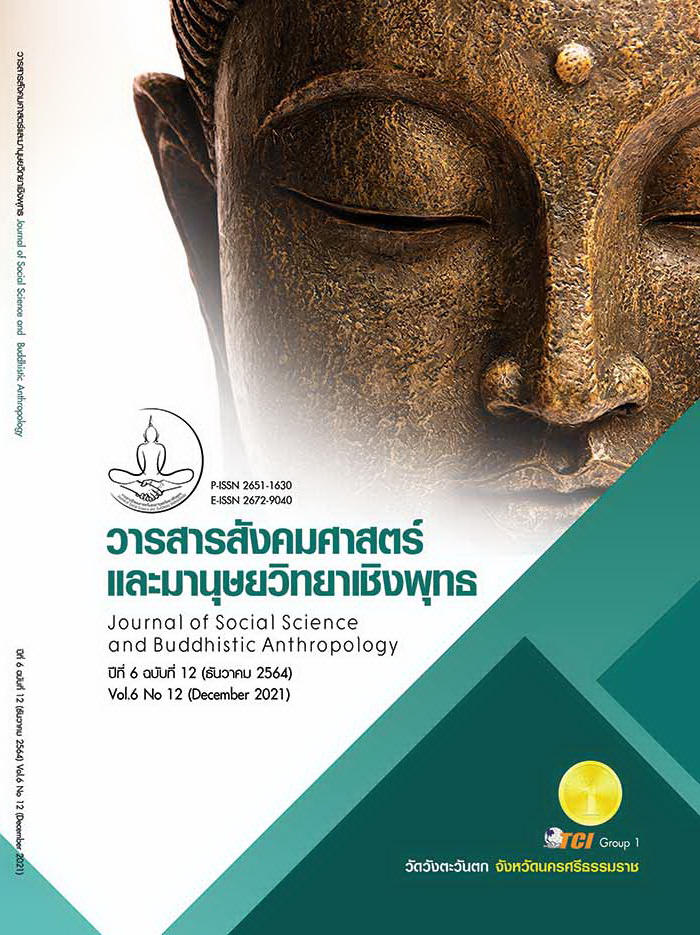INTEGRATION OKRS OF INSTRUCTIONAL SUPERVISION IN THE DIGITAL ERA FOR SUCCESS OF TEACHERS’ LEARNING MANAGEMENT
Keywords:
Instructional Supervision, Digital Era, OKRsAbstract
This article aims to discuss instructional supervision in the digital era with the concepts of Objective and Key Results (OKRs) integrated and applied to promote the success of teachers’ learning management. This is because the role of digital society plays in many areas of technological adoption including instructional supervision in which reflects the quality of teachers’ learning management and academic staff performance. The crucial aspect of technological change, besides teachers’ technology adoption, lies on the objectives of teachers to be explicitly stated and be possibly put into practice as well as the adaptations of teachers to coping with global changes, directly leading to Key Results to learners. The application of the OKRs concepts aligns with the processes of instructional supervision empowering teachers for their effective learning management. The methods involve setting goals, practicing, and monitoring the instructional processes in which supervisors need to supervise, help, advise, and continuously monitor. Therefore, the discussions and exemplifications of OKRs in this article address the linkage of the application of instructional supervision. Readers know its guidelines or methods of how to integrate the instructional supervision in the digital era with the concepts of OKRs that both teachers and their colleagues have put into practice for earning their achievements. Indeed, it is the cumulative development of ideas from making use the knowledge created by the networks of professional learning community where ICT is applied to creating cooperative learning from reflective thinking.
References
กระทรวงศึกษาธิการ สำนักงานเลขาธิการสภาการศึกษา. (2562). OKRs กับการประกันคุณภาพการศึกษา. นนทบุรี: 21 เซ็นจูรี่.
. (2562). เเนวทางการพัฒนาสมรรถนะผู้เรียน ระดับการศึกษาขั้นพื้นฐาน. นนทบุรี: 21 เซ็นจูรี่.
กิตติพัทธ์ จิรวัสวงศ์. (2561). การบริหารผลงานด้วย OKRs และการพัฒนาองค์กรสู่ความเป็นเลิศ. เรียกใช้เมื่อ 15 พฤษภาคม 2564 จาก https://www.okrsway.com/blank-3
กุลกาญจน์ สุวรรณรักษ์. (2562). การนิเทศการสอนในยุค 4.0. กรุงเทพมหานคร: คณะครุศาสตร์ มหาวิทยาลัยราชภัฏบ้านสมเด็จเจ้าพระยา.
จิณณวัตร ปะโคทัง. (2561). ภาวะผู้นำยุคดิจิทัล สำหรับผู้บริหารมืออาชีพ. อุบลราชธานี: ศิริธรรมออฟเซ็ท.
นภดล ร่มโพธิ์. (2561). OKRs กับการบริหารโรงเรียน. เข้าถึงเมื่อ 15 พฤษภาคม 2564 จาก https://storylog.co/category/knowledge
. (2564). Personal OKRs ชีวิตจะสำเร็จตามเป้าหมายถ้าวัดผลได้เป็นระบบ. กรุงเทพมหานคร: อมรินทร์ฮาวทู อมรินทร์พริ้นติ้ง แอนด์ พับลิชชิ่ง.
มุกดา เลขะวิพัฒน์. (2563). ตกผลึกความคิดชีวิตศึกษานิเทศก์ 30 ปี จากหลักการ ทฤษฎี สู่วิถีปฏิบัติ. แพร่: เลิศไพศาลการพิมพ์.
วิกิพีเดีย. (2564). ความหมายของ OKRs. เรียกใช้เมื่อ 15 พฤษภาคม 2564 จาก https://th.wikipedia.org/wiki
ศิวาพัชญ์ บำรุงเศรษฐพงษ์ และคณะ. (2562). การบริหารงานวิชาการในสถานศึกษาตามแนว OBJECTIVES & KEY RESULTS (OKRs). วารสารวิทยาลัยสงฆ์นครลำปาง, 8(3), 258-272.
สิทธิพล อาจอินทร์. (2560). ศาสตร์และศิลป์การจัดการเรียนรู้ในศตวรรษที่ 21. ขอนแก่น: มหาวิทยาลัยขอนแก่น.
Bernadette, M. (2001). Supervision in Education: A Differentiated Approach with Legal Perspectives. United States of America: An Aspen Inc.
Glickman, C. et al. (2017). Supervision and Instructional Leadership: A Developmental Approach. United States of America: Pearson Education.
John, E. D. (2019). OKRs: A school leader’s productivity secret weapon Leadership. Retrieved April 19, 2020, from https://www.betterleadersbetterschools.com/okrs-a-school-leaders-productivity-secret-weapon
Michael, F. D. & Wayne, K. H. (2021). Principle Improving Instruction. Retrieved April 19, 2020, from https://bit.ly/3pd9TLT
Organization for Economic Co-operation and Development. (2021). PISA 2021 ICT FRAMEWORK. Retrieved April 19, 2020, from https://www.oecd.org/pisa/sitedocument/PISA-2021-ICT-Framework.pdf
Pam, G.& Morva, M. (2008). The Courage to teach: Directions for Research in Teaching and Teacher Education. United States of America: HB Print Inc.
Parker, J. P. (2007). The Heart of a Teacher Identity and Integrity in Teaching. Retrieved April 19, 2020, from http://www.couragerenewal.org/PDFs/Parker-Palmer_The-Heart-of-a-Teacher.pdf
World Economic Forum. (2020). The Future of Jobs Report 2020. Retrieved April 19, 2020, from https://www.weforum.org/reports/the-future-of-jobs-report-2020









